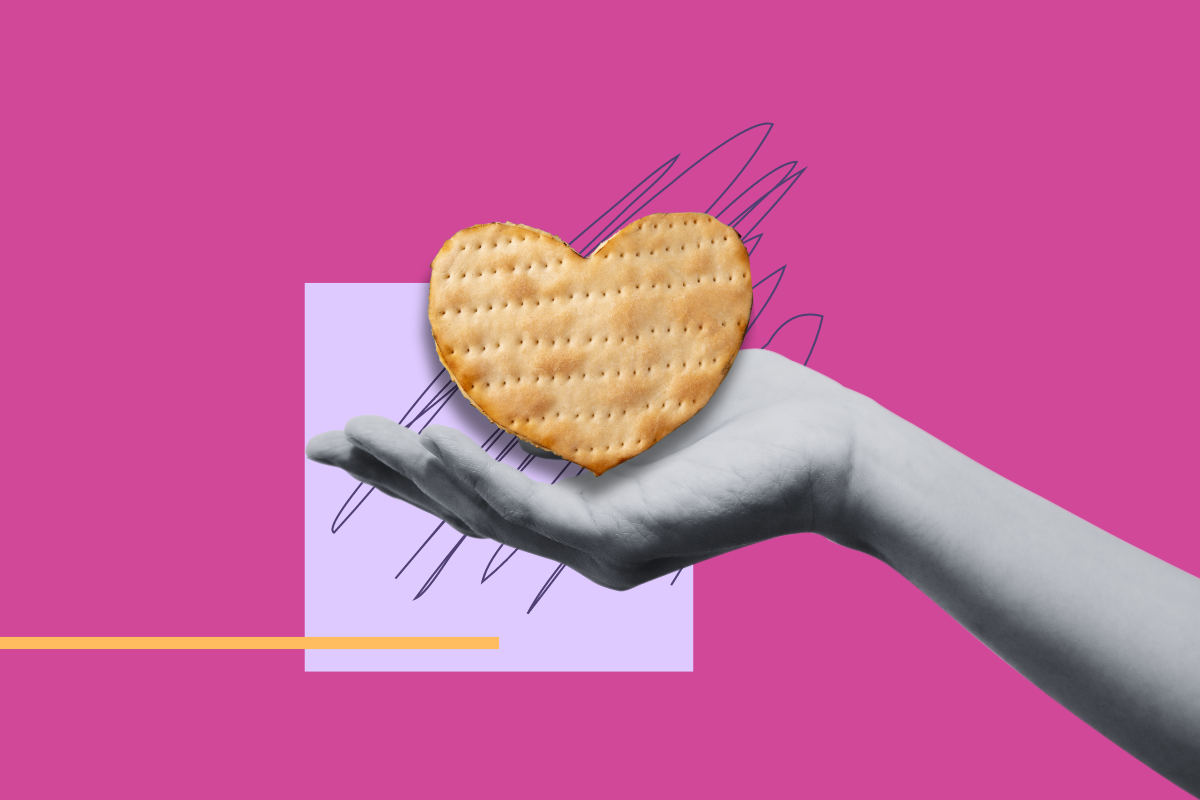I once heard about a group of Middle Eastern Jewish women for whom food preparation was their primary form of worship. To get ready for the holiday of Passover, the women sorted and cleaned large quantities of rice, one grain at a time, seven times each. When a researcher first stumbled upon this, she assumed some oppressive male rabbi had once demanded this of them, recently or far in the past. No, they told her, this was how they spoke to God, a prayer that came from their homebody hearts.
I think about these women often when I prepare for Shabbat or any Jewish holiday — but most of all Passover. It’s a lot of work, and we are hardly a feather and candle family. In addition to cleaning, cooking, social organizing and all the other stuff some academics call “kinwork,” we are also supposed to use an ancient piece of pedagogy to teach our children deep lessons about slavery and freedom, pain and belonging, all while they complain of boredom. My friend and Kveller Haggadah co-author Gabrielle Birkner and I did our best to make this as easy as possible… and yet, even for us, authors of the finest family-friendly haggadah around, the seder is never quite what we imagined. Transcendence or communion with the others around our table or, dare we say, God, is difficult to achieve.
Or maybe not. Maybe I’ve been too stuck in a definition of religious practice that ignores caregiving. These rice-cleaning women offer a different way to look at things, a different map of spirituality in which care and domestic work are not the preamble to the real deal stuff, but the real deal stuff itself. Unfortunately, most religious traditions, Judaism included, have had a blindspot to the very meaty spiritual work entailed in care. And yet, when you think about it, caregiving and spirituality have a lot in common.
Religion pushes us to grapple with the mysteries and complexities of life, and suffering, rejoicing, despairing and hoping is all part of the process. In our spiritual lives, we toggle between feeling adrift in chaos and having a deep sense of purpose, moving through the questions and certainties that help us tell the stories of our days.
Caring for a dependent human, one to whom we feel a sense of obligation and affection, is all of the above. Caregivers experience madness, doubt and rawness alongside communion and direction, suffering and hope forever intertwined (personally I cycle through all of these feelings every night when we try, and fail, to get our children to bed at a reasonable time). It can feel like a test, punishment or a higher calling, a way to go higher and lower, a reason to turn within and a reason to turn without, sometimes at the same time. I dig way deep into all this in my book “When You Care: The Unexpected Magic of Caring for Others,” which also considers care’s political, economic, philosophical and psychological might, and is out April 23, making it my second Passover baby. Levi, newly age 7, is my first.
My wish for anyone in the trenches of caregiving this Passover is to see it all as holy work. The cooking, cleaning, preparatory texting, the singing silly songs out loud, the asking your kids questions they may not be able to answer now but will lodge somewhere deep inside of them, answers unfolding like a slow-blooming flower. Consider navigating the inevitable interruptions and kvetching of the children as something that brings you closer to the heart of the experience, instead of something that takes you out of it. And while you are at it, think — no, talk — about your passage through the Mitzrayim of parenthood, of your moments of narrowness and your moments of expansiveness. We are reliving the birth story of a people during the seder. (Think about it, passing through a bloody narrow tunnel into… a new life.) You know a thing or two about birth stories, new beginnings, of ending up on the other side of a river with no road map but all the hope in the world that somehow this will all work out.
By raising humans, we are on the frontline of the holy work of creation. We aren’t just rice cleaners — or moms. We are seekers, pursuing our own liberation from a culture that doesn’t value our care work and domestic labor. This is the freedom we need. Next year in a world filled with peace and care for all — including the caregivers.








